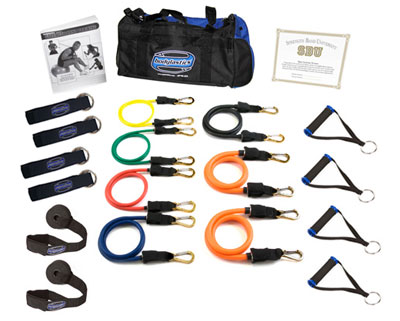
Investing in guidance from a personal trainer can be a very sensible
thing to do. However for some, the cost may be off putting. Whether you’re
already training with a personal trainer or you’re unsure how you’d get the
most value from a sessions these tips should be helpful:
1) Get there early and run through
a warm up routine – If you can arrive 10 minutes prior to the session and
warm up this is ideal. Then, you can hit the ground running and fly straight
into the session. If you’re unsure exactly what to then your trainer can you
some useful drills to include. If you waste 10-15 mins of each session warming
up with your trainer then over the course of a year you’ve missed out on 12
hours of productive time with your PT.
2) Get a good night sleep prior to
sessions – The saying goes: “an hour before midnight is worth 2 hours after
midnight.” This is so true! To improve your quality of sleep, check make sure
you have a sleep routine that you start as early as possible. Basic things
include avoiding a TV, phone or illuminated screen before bed, try to brush
your teeth as early as possible and pack your bag the night before.
3) Don’t drink alcohol the night
before sessions.. AT ALL! Even a small amount of alcohol can have a
significant impact on sleep, food choices and energy so if you want to make the
most of your session with a trainer then you need to go completely without
alcohol during the 24 hours before training.
4) Listen and try to absorb/learn –
Use the sessions as lessons. Try to absorb as much information as you can. If
you don’t understand what your trainer is telling you then let them know and ask
them to explain it in a different way. It’s important that you learn over time
and feel more confident in your own knowledge and abilities week-on-week.
5) Stay active between sessions –
An hour in the gym with me will do you good; but it’s important to stay active
throughout the week. Major activities such as gym sessions, sport and group
exercise classes should be part of your weekly routine. However, smaller
efforts such as taking the stairs every day, walking in your lunch break and
walking instead of driving short distances will all add up to make a
significant impact no matter what your goal. Activity is key.
6) Foam roll after a session –
The foam roller is a great way to improve recovery and aid performance. It’s
important to make this part of your routine and mobilise major muscle groups
and joints that have been worked during the session. Once you understand the
fundamentals of this you can probably do this in your own time before and after
sessions.
7) Ask your PT for session plans - Guidance from your trainer shouldn’t be
limited to an hour at a time within the gym. As your trainer for specific,
tailored programs to follow in your on time in order to compliment the 1-2-1
sessions.
8) Give feedback – It’s
important that you’re not only making progress but that you understand what
we’re doing and (hopefully) enjoy it too in some part. Tell your PT if sessions
are too hard, too easy, causing you pain or you just hated them. They may not
change everything but they should at least listen.
9) Leave your lack of enthusiasm at
the door – We all have good days and bad days and part of the trainers job
is to listen and develop a relationship with you so they’re open to hearing
about your life outside of the gym. However, once you’ve made the effort take
yourself to the gym, you might as well make the most of it. It’s only an hour
after all!
10) Be honest – Its essential
that you’re honest with your trainer! In fact, this should probably be the 1st
point. Honest about what you’re doing outside of the session, what you’re
eating in your own time, how difficult sessions are, what you can and can’t do,
how you’re feeling, if you’re ill, your mood, any injuries all of it! Tell them
everything!
Don’t forget to follow me on www.Twitter.com/MichaelD_PT www.Twitter.co/MichaelD_PT











